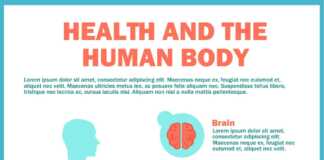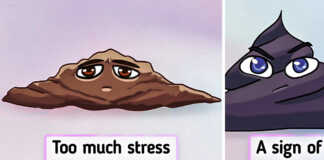We often don’t recognize the symptoms of carbohydrate intolerance and we can even misdiagnose them as signs of other problems. This condition occurs when the body cannot effectively digest starchy or high-sugar foods, such as processed sweets, some fruits, and milk.
And it turns out that this is relatively common, especially in children, and can cause a lot of discomforts.
We grew extremely interested in learning more about this topic. And now, we’re looking forward to sharing the information we’ve discovered.
6. You Have Stomach Cramps
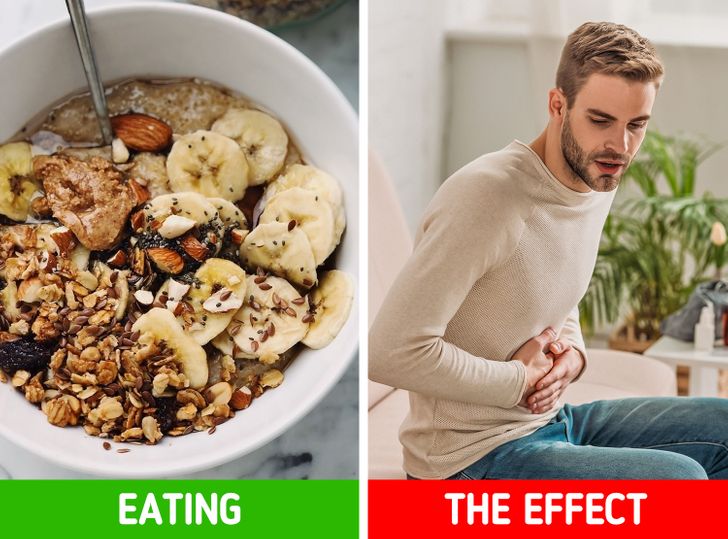 © pexels.com, © depositphotos.com
© pexels.com, © depositphotos.com
As in many cases where your body has digestion problems, one of the first signs of sugar intolerance is stomach cramps.
Although fruits and vegetables are healthy and we need to eat them to maintain a balanced diet, some of them can be rich in carbohydrates and starch, interrupting digestion.
Among them are corn, sweet potatoes, quinoa, bananas, oats, apples, and mangoes.
Of course, cramps alone do not indicate that you cannot digest specific carbohydrates or sugars. This problem is usually followed by more symptoms.
5. You Start Feeling Nauseous
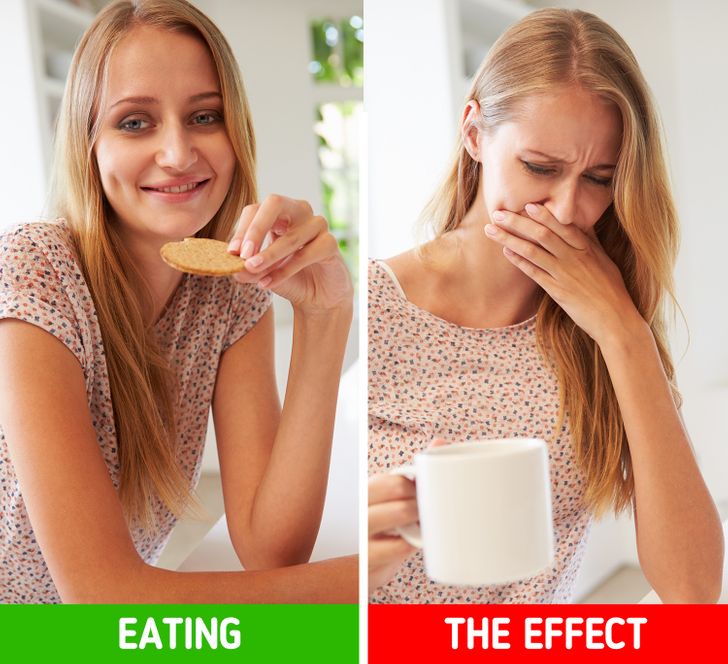 © depositphotos.com, © depositphotos.com
© depositphotos.com, © depositphotos.com
In addition to cramps, nausea and dizziness may be another indicator. Other foods that often contain hidden sugars are processed sweets, snacks like chips or nuts, salad dressings, pasta sauces, and instant oats.
To be safe, always check the ingredients listed on the packaging to avoid unwanted digestion disruptions.
4. Your Belly Becomes Bloated
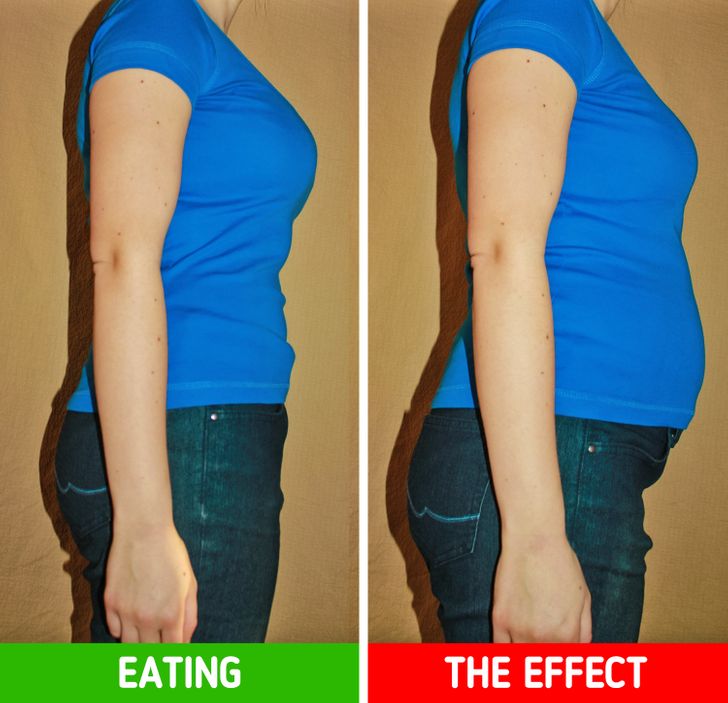 © shutterstock.com
© shutterstock.com
Cramps and nausea are often followed by another indicator of intolerance known as bloating. Although it is very common to feel bloated in the abdomen after eating various types of food or full meals, you need to be careful with sugars in particular.
Sweeteners are other products that can hide sugars. This includes agave and corn syrup, molasses, brown sugar, and even honey.
3. You Get Gassy
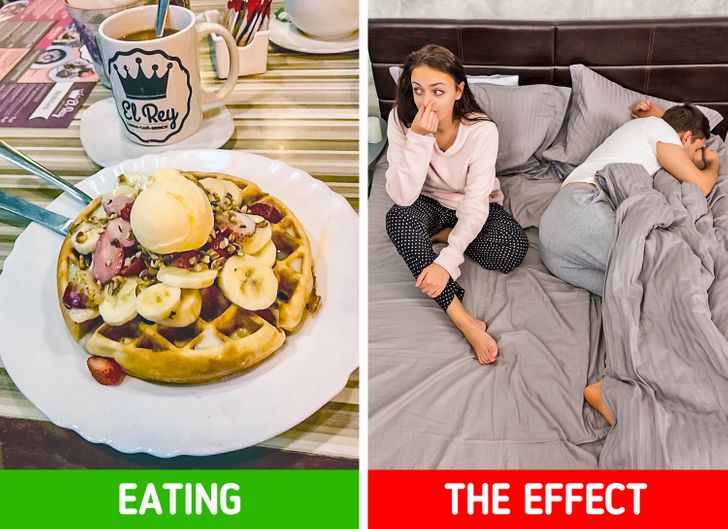 © Karely Sánchez / flickr, © depositphotos.com
© Karely Sánchez / flickr, © depositphotos.com
Eating too fast and swallowing too much air during the process can also cause gas. If you also feel like burping, this can be a sign of a disturbing eating habit.
However, if flatulence is combined with the symptoms listed above, this may be a sign that you need to pay more attention to the foods you eat.
Products containing lactose (sugars in milk) may be other possible digestion disruptors that can cause bodily problems and generate excess gas.
2. You Find Yourself Craving More Sweets
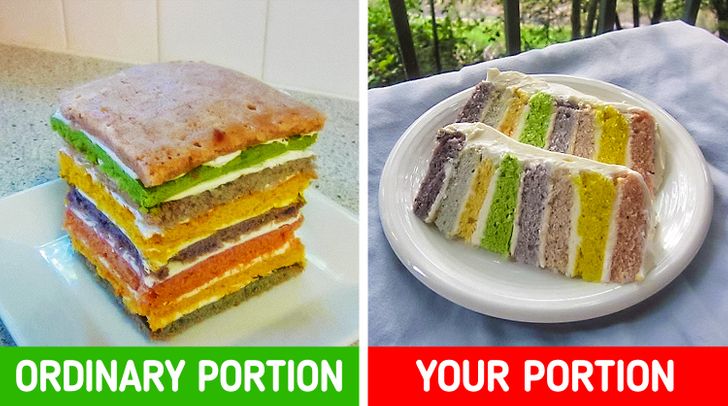 © Jennifer Chait / flickr, © Jennifer Chait / flickr
© Jennifer Chait / flickr, © Jennifer Chait / flickr
Another indicator, which may even seem confusing, is private desires. People with an intolerance to carbohydrates may desire them more than normal people.
However, there may be other reasons for your desire for something sweet. Among them are hormonal changes or the lack of certain nutrients in the body.
1. You Feel Sleepy After Eating
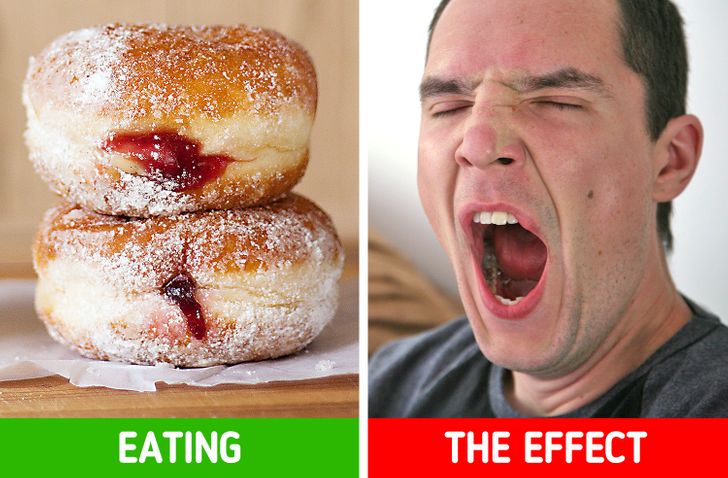 © pexels.com, © Simon Law / flickr
© pexels.com, © Simon Law / flickr
If you want to take a nap after eating a carbohydrate-rich meal, this may be another warning sign that your body is not handling carbohydrates well.
In addition, this can be combined with symptoms such as weakness, fatigue, mood swings, or even headaches.
How To Test If You Have Sucrose Intolerance
Anyone can take this simple test at home. First, you will need to dissolve 4 tablespoons of white sugar in 4 ounces of water and drink the mixture on an empty stomach.
If symptoms such as bloating, gas, and diarrhea appear after 4 hours, this can be a sign of sugar intolerance.
However, since the signs can be severe and unpleasant, it is always highly recommended to consult your doctor first before performing the test.
Have you noticed any of these symptoms after eating a sweet or your favorite fruit?


